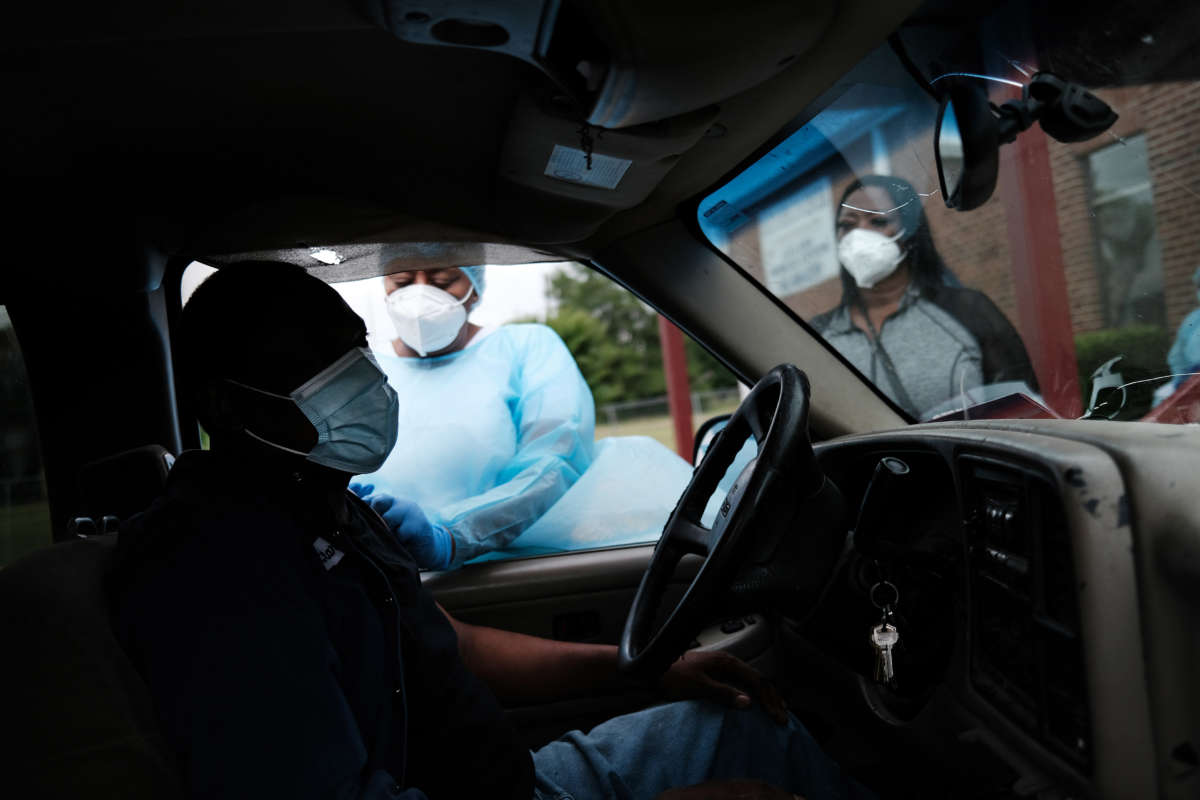Washington, D.C., resident Michael Tyree wasn’t sure about getting the coronavirus vaccine at first.
“I thought about it for a little over a month,” said the 70-year-old retiree, who relies on Medicaid for health care.
But his sister insisted that he get vaccinated before visiting her. So he walked into a CVS for his shot last year.
Many of his fellow Medicaid patients are still on the fence. People insured by Medicaid — the joint federal-state program that provides health care coverage to more than 78 million people with low incomes or disabilities — are less likely to be vaccinated against the coronavirus than those with private insurance, according to a report by the National Academy of State Health Policy.
Though complete national data is scarce, California reported last month that 57% of Medicaid recipients in the state had gotten at least one dose of the vaccine, compared to 84% of all residents. Other states have reported similar gaps.
Most Medicaid enrollees are people of color, and the pandemic hit some of those communities hardest. It has also taken a particular toll on people with disabilities, who are eligible for Medicaid. But along with common reasons for vaccine hesitancy — such as lack of trust in government or the health care system — Medicaid patients may also have more difficulty taking time away from low-paying jobs to get a shot, experts say.
“It’s very important that we are making sure that vaccines are available to all populations of people,” said Dr. Michelle Fiscus, a public health consultant with NASHP who helped author the report, “especially those who have already experienced disproportionate burdens from COVID-19.”
The report recommended that state Medicaid programs improve their data systems so that they know how many of their patients have received coronavirus vaccines. It also recommended they pay doctors for their time counseling patients on vaccination, even if the patients don’t end up accepting the shot. The Biden administration moved in December to require states to cover this type of counseling for children’s coronavirus vaccines. Doctors have pushed the administration to do the same for adults.
“That is a disincentive to health care providers to take the time to have that talk if they can’t be paid for that time,” Fiscus said. “So it’s really important that medical providers be appropriately compensated.”
The pandemic has highlighted states’ poor record in inoculating Medicaid patients against preventable disease. Adults insured by Medicaid are less likely than those with private insurance to have gotten all commonly recommended vaccines, such as influenza and tetanus, said a March report from the Medicaid and CHIP Payment and Access Commission.
But state Medicaid agencies have a lot on their plate besides vaccinations: The Biden administration is expected to end the public health emergency for the coronavirus in coming months, and that would also mean an end to the mandate that states keep current Medicaid patients on their rolls. Agencies will have to reevaluate recipients’ eligibility when that happens; millions of people may lose their Medicaid coverage.
Join us in defending the truth before it’s too late
The future of independent journalism is uncertain, and the consequences of losing it are too grave to ignore. To ensure Truthout remains safe, strong, and free, we need to raise $24,000 by the end of today. Every dollar raised goes directly toward the costs of producing news you can trust.
Please give what you can — because by supporting us with a tax-deductible donation, you’re not just preserving a source of news, you’re helping to safeguard what’s left of our democracy.
